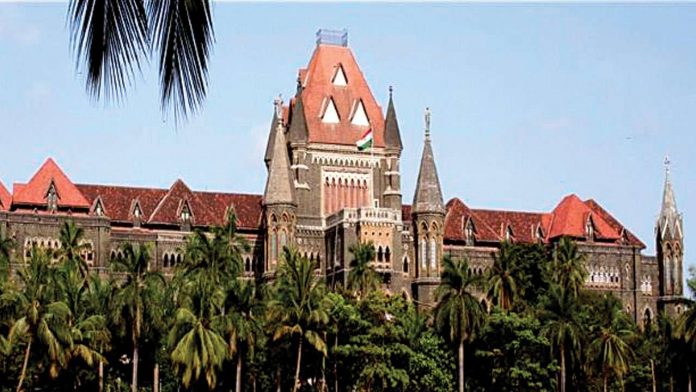This article has been written by Saylee Chaudhari pursuing Advanced Civil Litigation at Lawsikho.
This article has been published by Sneha Mahawar.
Table of Contents
Introduction
Marriage is a legally and socially sanctioned union between a man and a woman. It gives legal identity and legal rights to both parties. Marriage is something that needs the consent of a woman and a man. The union should be mutual. Culturally, marriage is considered a compulsory ceremony before pursuing any sexual activity.
Even in some cases, it is observed that the intercourse has taken place even before marriage, with the hope that the boy will marry the girl in the future.
But what if the consent has been obtained by false representation or on the basis of a misconception of facts merely to establish a sexual relationship? Is such an act considered an offence? Is it punishable?
The Bombay High Court, in a landmark judgment, Kashinath Narayan Gharat v. The state of Maharashtra (2021) has clearly stated and explained the offence of cheating and whether the refusal to marry after making a promise to marry would constitute cheating.
Summary of the case
The complaint was filed under Sections 376 and 417 of the Indian Penal Code, 1860. There was a physical relationship between the accused and the woman. The woman complained that the accused had physical relations with her and then refused to marry her.
The appellant was convicted by a judgment and order passed by the learned Additional Session Judge under Section 417 of the Indian Penal Code for having a sexual relationship with the victim with a promise of marriage. He was sentenced to undergo rigorous imprisonment for one year and a fine of Rs. 5000/-. He was acquitted of the offence under Section 376 of the Indian Penal Code.
Later, after analysing the evidence on record and the facts of the case, the High Court of Bombay acquitted the appellant of all charges, and the order was quashed and set aside.
Judgment
In this case, both the prosecutrix and the accused were known to each other for three years. It was observed that the consent for a physical relationship was not given under a misconception of the facts, nor was there any evidence indicating that the accused did not intend to marry her. It was further stated that, in the absence of evidence, merely refusing to marry her would not constitute an offence under Sections 376 and 417 of the Indian Penal Code.
Legal provisions
The Case revolved around four provisions-
- Cheating under Section 417 of The Indian Penal Code;
- Rape under Section 376 of The Indian Penal Code;
- Section 90 of the Indian Penal code- Consent known to be given under fear or misconception;
- Section 374 of the Code of Criminal Procedure, 1973.
Cheating
The Oxford dictionary has explained cheating as “to trick somebody or make them believe something that is not true.”
Section 417 of the Indian Penal Code deals with “cheating,” wherein dishonest concealment of facts is an offence. The offence is punishable with imprisonment of one year or with a fine or both.
In the present case, the question of making false promises just to establish a sexual relationship has been analysed. In which, a false promise and consent given under misconception of facts are regarded as cheating. Whereas mere refusal to marry is not considered cheating.
Rape
Rape is a sexual assault in which the victim is forced to have sex, without his or her consent and by using violence. Section 376 further explains that if a man tries to have sexual intercourse with a woman-
- Against her will;
- By not obtaining consent from her;
- If consent is obtained by fear for her or someone she is related to or interested in fear of death or injury;
- If she believes that the consent she is giving to is her husband even though he is not her husband;
- Consent of unsoundness of mind;
- Consent is given if she is under sixteen years of age.
Consent under fear or misconception
Consent is when someone agrees to something. Such consent must be given without any fear of life or misconception. The consent that is given under fear of or injury to a person or death or misconception comes under this section.
In the present case, consensually establishing a physical relationship will not come under Section 90 of the Indian Penal Code.
Appeals from convictions
Section 374 of the Code of Criminal Procedure deals with any appeals against any impugned judgment from an accused to Supreme Court and High Court who has been convicted on a trial.
What is a false promise
A false promise is something in which a promise is given intentionally to deceive the person into obtaining something or with full knowledge that such a promise will not be carried out. A false promise is given when the person giving such a promise wants something in return and he/she knows that unless and until such promise is not given he/she will not get that thing.
The false promise will be-
- By gaining something in return for the promise;
- An intention to not carry out the promise;
- To deceive someone into believing that the promise will be carried out in the future.
Promise and misconception of facts
When consent is given based on a false promise to marry and the maker of the promise has no intention to abide by it but the promise is made just to engage in sexual intercourse; it is said to be the “misconception of facts.” Consent given under a misconception of fact is no consent in the eye of the law.
But a mere breach of promise is not a false promise.
Sexual intercourse on false promise to marry
As per the above understanding, a misconception of the facts is considered a false promise. When a person with the intention to have sexual intercourse gives a false promise to marry the girl and later refuses to marry, the false promise is a false promise and is punishable under sections 376 and 417 of the Indian Penal Code.
Such intercourse under the pretext of a promise to marry is considered rape only if such promise was given solely for the purpose of having sexual intercourse with the girl.
The misconception of facts would be-
- False promise or fraudulent misrepresentation;
- Mala fide intention behind giving the promise;
- It has to be in proximity to the time;
- Should not be a deliberate choice of the victim.
Findings of the case
It became crucial to check whether the following things were considered before passing judgment-
- Whether the physical relationship was consensual;
- That the accused never wanted to marry;
- Whether the consent obtained was by misconception of the facts.
It was established that consent for a physical relationship was given willingly, and the relationship continued for three years. There was a social barrier between both of them. There was no evidence of whether the accused fraudulently lied about the marriage proposal to establish a physical relationship. Due to the absence of evidence, it could not be established whether such consent was given under a misconception of the facts, and hence the accused was acquitted of all charges.
Relevant case laws
Maheshwar Tigga v. State of Jharkhand (2020)
The prosecutrix and the accused in this case were in a relationship for four years. The prosecutrix alleged that she was raped at the point of a knife. The accused later promised to marry her and continued to have a physical relationship with her. The relationship continued for four years. She even stated that they were engaged. During this time, she stayed with the accused at his house for fifteen days. The prosecutrix further stated that due to religious barriers, the marriage could not be established.
The question, in this case, was whether the promise given was under the misconception of facts and that he never wanted to marry.
Things were taken into account:-
- The prosecutrix in her letter acknowledged that her parents used to beat her due to their relationship
- The religious barrier of the accused being a scheduled caste and the prosecutrix being a Christian
- The consent obtained was under fear or was given under a deep love affair.
- The proximity of time
Under Section 90 of the IPC, consent given under circumstances of fear or misconception of fact is not consent. It was observed from the evidence that a physical relationship was established consensually with the consent occasioned by their love affair. Further, the consent given under the misconception of facts has to be within a proximity of time and cannot be spread over four years. Additionally, the consent given was a conscious choice.
Sonu @ Subhash Kumar v. State of Uttar Pradesh and Anr. (2021)
The case was similar to the present case. In this case, an FIR was registered after the accused refused to marry her. The FIR was quashed, stating that there was no ground to prove the allegation that the promise to marry was based on false representation or inception.
Conclusion
Many times, people misuse laws that are made to protect them to harass other people. It is well delivered after rightful thinking that if there was no intention of cheating someone by giving false misrepresentation and if the relationship established was with mutual consent then the refusal to marry will not amount to cheating and/or rape. It has been observed that women, in particular, are intemperate and fall for promises to establish a physical relationship. It is indeed wrong to play with someone’s feelings, but as per this present case, if the marriage was not possible due to social barriers or any other reasons, then refusing to marry is not cheating. Further, one cannot force someone to marry them. The punishment for rape is for those who suffer and do not consent to or are forced to establish a physical relationship; hence, using such laws only to restrict someone from marrying someone else is misusing the rights. It also affects someone who has really suffered through rape. Such judgments further help to establish the thin line between willful consent and forced consent.
References
- https://www.livelaw.in/pdf_upload/bombay-high-court–406599.pdf
- https://main.sci.gov.in/supremecourt/2019/11184/11184_2019_33_1501_24138_Judgement_28-Sep-2020.pdf
- https://www.livelaw.in/pdf_upload/sonu-subhash-kumar-vs-state-of-uttar-pradesh-ll-2021-sc-137-390179.pdf
Students of Lawsikho courses regularly produce writing assignments and work on practical exercises as a part of their coursework and develop themselves in real-life practical skills.
LawSikho has created a telegram group for exchanging legal knowledge, referrals, and various opportunities. You can click on this link and join:
Follow us on Instagram and subscribe to our YouTube channel for more amazing legal content.
 Serato DJ Crack 2025Serato DJ PRO Crack
Serato DJ Crack 2025Serato DJ PRO Crack












 Allow notifications
Allow notifications


